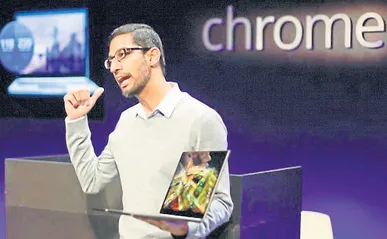
Technology
Pro-science, but pro-wisdom!
Much is made of the information overload of the modern era.
With the 24/7 news cycle, multiple feeds, and social media, we have a proliferation of information. This has been an exaggerated feature of the pandemic: endless Covid ‘live feeds’, whether it is ‘second wave updates LIVE’ or ‘vaccine roll-out LIVE’. Commentators then perpetuate this with near-instant reflections on these live updates.

Technology
Do you need to develop better digital habits?
A few years ago, I was asked to do a main stage seminar on digital technology at a large conference for ministers.
In the Q&A time I got a rather angular question from a minister who I think was feeling overwhelmed: ‘This is all very well for those who are young and trendy, ministering to hipsters, but what does it have to do with the rest of us?’

Technology
The local church online and the ‘new normal’
One thing is for sure, when Covid-19 is finally behind us, the ‘new normal’ will not be the old ‘normal’.
I was speaking to a businessman in my church who was saying that his company surveyed all 400 or so of its employees and not one of them said that they wanted to go back to working full-time from the office – not one! There will be some areas where things will go ‘back to normal’ but, as Christians, we need to reckon with the reality that the pandemic has changed how people think about life online for good.

Technology
Broken by breaking news?
In 2016 a therapist, Dr Steven Stosny, coined the term ‘Headline Stress Disorder’ in response to the increasing number of psychological studies demonstrating the link between the 24/7 news cycle and anxiety, sadness and hopelessness. It seems that the obsession with breaking news is breaking us.
As I write this we are in the midst of the Covid-19 pandemic and if you go to any mainstream news outlet, their homepage will have a ‘live’ feed to coronavirus updates. This is now the common response to any breaking news story: set up a live feed for minute-by-minute information. But, while such updates can be helpful, they also have a powerful effect on us.

Technology
Digitial resolutions
We might be a month late, and you may be feeling defeated having failed to last even January with the resolutions you made, but I’d like to encourage you to consider some digital resolutions for the coming year.
‘But aren’t New Year’s resolutions a secular idea, and should we as Christians really buy into them?’

Technology
Faith and online fraud
In the past few years there have been growing fears of a crisis in online security and fraud.
As more and more of our banking, shopping and information moves online so the demands on digital security increase. In 2016 the FBI described the losses due to cyber crime as ‘staggering’, with over $1billion in that year alone. One in five people (and rising) are victims of online fraud and about half never get their money back, with the average loss being £800.

Technology
Is waiting a waste of time?
‘Time is money’, or so we are told.
In the West we have turned time into a commodity. We talk of ‘spending time’, ‘making up for lost time’ and ‘wasting time’ – all conveying the sense that it is a currency we trade in. In such a context one of the big draws of mobile devices is that they are ‘time-saving’, there to make our lives more efficient (where efficiency is productivity/time). So any moment that you are waiting, and therefore not maximising your productivity, your hand reaches for your phone to check your messages, emails, Facebook or Instagram account. And what’s the problem with this, after all, isn’t God in favour of productivity? Aren’t we told in Ephesians 5:16 to ‘make the best use of time’? While there are of course many verses in Scripture to warn against laziness, one of the casualties of our pursuit of saving time is the art of waiting well. Notwithstanding the fact that much of our frantic activity is actually not very productive (for example there are numerous studies that show multitasking is actually not as efficient as working on one task at a time), waiting time is not a waste of time.

Technology
www.happyanniversary...?
What a difference 30 years make. To mark
three decades since he submitted his Internet
proposal, Sir Tim Berners-Lee says
that
global action is required to tackle the web’s
‘downward plunge to a dysfunctional future’.
Sir Tim has identified three main areas
of dysfunction today: ‘Deliberate, malicious
intent’ (such as State-sponsored hacking and
online harassment), ‘System design that creates perverse incentives’ (such as clickbait),
and
‘Unintended negative consequences’
(such as polarised online discussions). Who of us could really disagree with such a diagnosis? These flaws are all too commonly felt
by ordinary users.

Field of Dreams
Making the play
Thousands of Christians around the UK play sport every week.
Just think of the numbers involved: 15.74 million adults play sport weekly – that’s about a third of adults in the UK. The number is higher in the young-adult bracket where 55.2% take part in at least one session of sport a week, and even higher among 11-16 year olds where it is 86.6%!

Technology
InSight into our universe
On Monday 26 November Nasa’s Mars InSight probe touched down.
It is a wonderful technological achievement. Please note, I am using the adjective intentionally, ‘wonderful’ – an achievement that is (and should be seen as) ‘full of wonder’.

Technology
Snapchat dysmorphia
It sounds like an episode of the fictional dystopian series about technology, Black Mirror.
Patients are increasingly asking plastic surgeons to make them look like their filtered selfies.

Field of Dreams
The Bible and the ref
Referees are rarely out of the sports news.
They certainly garnered plenty of attention during the football World Cup. With the Video Assistant Referee (VAR) system making its competitive debut, there was even more opportunity to scrutinise officials’ decisions.

Field of Dreams
World Cup unites world?
With the World Cup under way, it is nearly impossible not to get swept up in the excitement and fervour.
How many times do we as England fans tell ourselves that just making the knockout stages would be an achievement for this young squad, only to start entertaining that glimmer of hope: ‘but there’s no reason we couldn’t go all the way’? Whatever the outcome for England, the tournament extends a different hope that is much needed in our divided times: it gives a glimpse of a world united.

Field of Dreams
Defying God’s limitations
This month’s column tackles the hot potato of doping.
Doping. It’s a word that rears its ugly head all too often in the world of sport. Already in 2018 there have been a series of drug scandals, while the international sporting community is still coming to terms with the scale of Russian state-sponsored doping.

Technology
The fight for our attention
You are having a conversation with someone when your phone buzzes.
Immediately you start to wonder what the notification is about. You think about checking your phone, but you hesitate because you don’t want to be rude. Then you realise that you have zoned out from the conversation and you don’t know what they’ve been saying. You’ve been distracted.

Technology
Virtual self-righteousness
In the West, ‘shame’ is often associated with other cultures and another time.
But social media is giving rise to a resurgence of shame and honour as significant social drivers.

Technology
Digital civility
Let me talk to you about Charlottesville, trolling and the need for digital civility
A week after the terrible events in Charlottesville that led to the death of Heather Heyer, the Crown Prosecution Service (CPS) launched an initiative to crack down on hate speech online. Prior to the announcement, laws against hate speech did not cover social media and online communications.

Technology
Digital souls?
Artificial Intelligence (AI) is a concept that excites some and frightens others.
But, whatever our reaction, it is increasingly becoming a big part of the technological landscape. Unfortunately the focus of too many discussions is grounded more in science fiction than science fact. This may make for provocative and alarming headlines, but it seldom enables discussions to focus on the right areas.